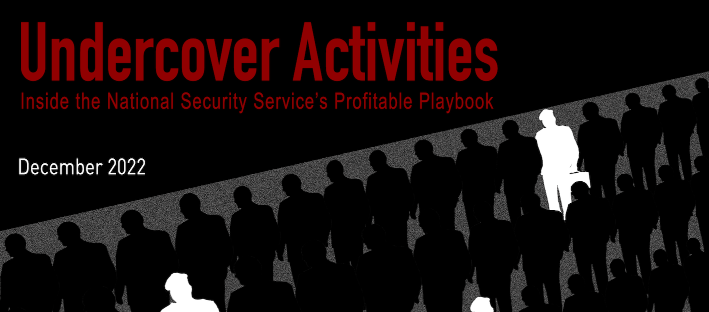Civil society and the media must be protected so that they can hold the South Sudan National Security Service (NSS) and the government accountable, according to a report by investigative organization The Sentry.
According to previous reports, South Sudan is plagued by horrific violence and rampant corruption.
Undercover Activities, a new investigation into the NSS released on Thursday, said the NSS, an agency operating under the supervision of President Salva Kiir, stands out as particularly ruthless, secretive, and well-funded.
“Fear of the NSS is pervasive in South Sudan, and for a good reason. Its personnel have been involved in widespread, grave human rights abuses, including kidnapping, torture, and illegal detention, and the organization operates without regard for basic human rights or the personal rights of civilians laid out in the South Sudanese constitution, including freedom of assembly, freedom from torture, and the rights to fair trial and litigation,” the report said.
The according to the new investigation, The Sentry found that to cement its control and power in South Sudan, the NSS has employed a two-pronged strategy of state capture and repression.
“Corporate records reviewed by The Sentry reveal a vast network of companies with NSS shareholders, ranging from media and publishing to natural resources and logistics. The oil, finance, and media sectors particularly suffer from NSS involvement both in terms of economic capture and repression,” the report said.
It added,” the NSS personnel have occupied key posts in state institutions, and the NSS itself has had a role in approving private company operations in the lucrative mining and security sectors. In this way, the NSS has been able to access off-budget finances and diverted revenues, all while sidestepping oversight and operational scrutiny.”
The NSS, according to The Sentry report, has interfered with civil society and the press, suppressed freedom of speech, and illegally detained and permanently silenced those who spoke out against the regime.
The investigative organization said it interviewed several South Sudanese in civil society organizations and in the media sector and that the interviewees expressed concern that they might be targeted by the NSS if they spoke openly about corruption or other government issues.
Recommendations
The Sentry called on the South Sudanese government to immediately close all NSS detention centres and ensure that the NSS releases all detainees who have not been charged with a crime or given a fair trial.
The organization also urged the United States, United Kingdom, European Union, Canada, and Australia to urgently investigate and, if appropriate, impose coordinated and targeted network sanctions on the individuals and entities described in the report, particularly the NSS-owned or -controlled commercial enterprises, as well as Akol Koor Kuc, Jalpan Obyce, Akot Lual Arech, and their enablers and support networks, pursuant to their Global Magnitsky-style or South Sudan-specific sanctions authorities.
The rights group also appealed to financial institutions should take measures to identify accounts held or beneficially owned by members of the NSS, other senior South Sudanese politically exposed persons (PEPs), and the 125 companies revealed by The Sentry to have NSS shareholders.




